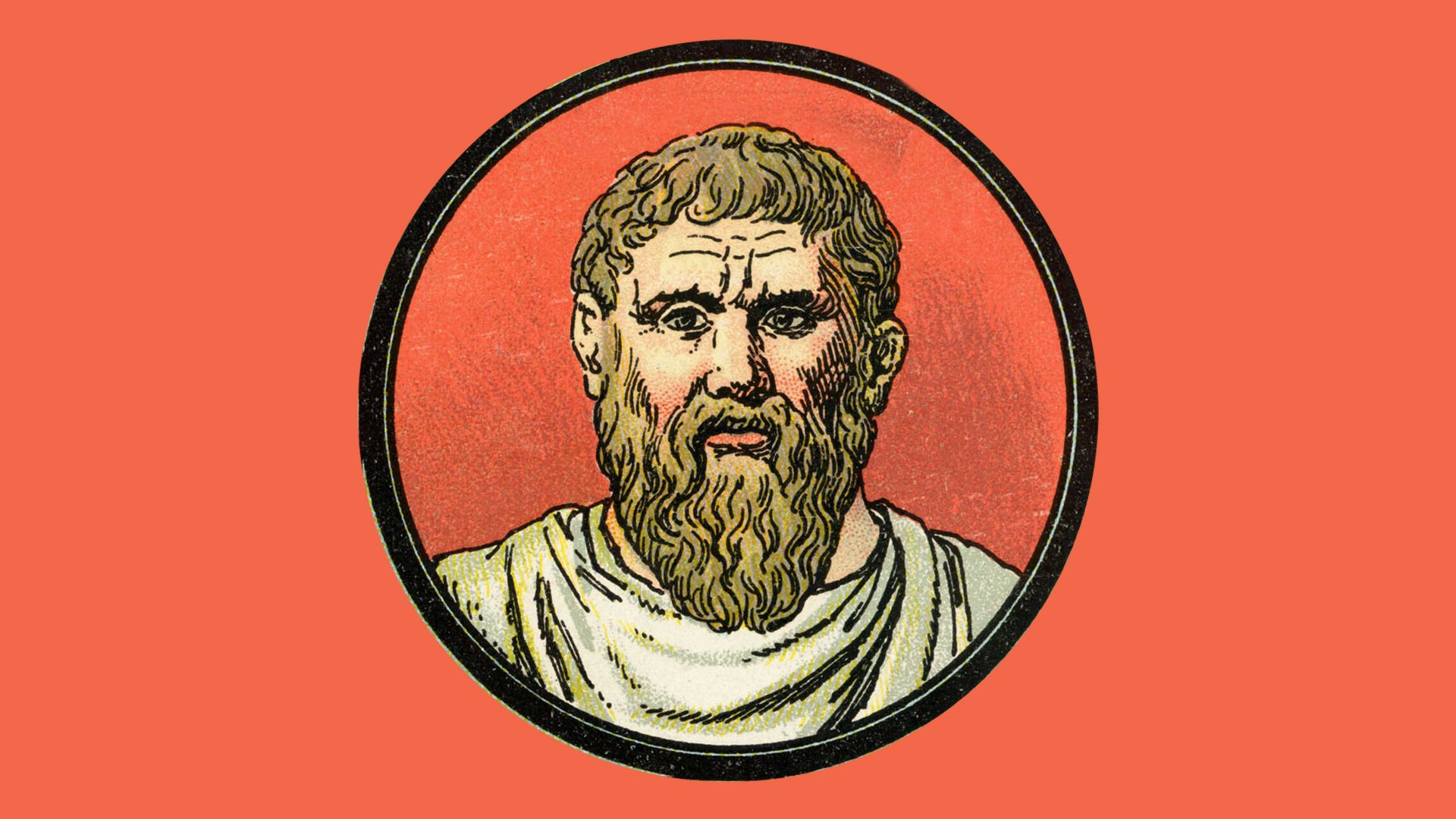Alfred North Whitehead wrote that “the safest general characterisation of the European philosophical tradition is that it consists in a series of footnotes to Plato.”
That idea can be disputed, of course, but it is true that Plato addressed many of the questions that have been at the centre of discussion for almost 2,500 years.
With his allegory of The Cave, in which prisoners are chained looking at a wall on which shadows of objects flicker, yet which the prisoners take for reality, Plato put the question “Are appearances reliable?” at the heart of philosophy.
His idea that a realm of the Forms exists, in which there are perfect versions of all the types of things that we encounter (a perfect bed, a perfect table, a perfect political state), and which is accessed by the use of reason rather than perception, seems exotic now (except perhaps when we talk about the nature of mathematics), and even his pupil Aristotle saw through it.
But many of his other thoughts continue to resonate. In the 20th century, Karl Popper, for example, developed his notion of an Open Society in explicit contrast with what he saw as the totalitarian vision that Plato outlined in The Republic.
Above all, it is through Plato’s dialogues that we come to know Socrates, Plato’s teacher, the great martyr and founding figure of the European philosophical tradition. Socrates is described by other contemporaries, such as Xenophon and Aristophanes (who caricatures him), but it is in Plato’s writing that he emerges as a powerful and original thinker, the gadfly who challenged those around him to defend their thoughts with reasons, ever conscious of how little he himself knew.
For Socrates the basic question was “How should we live?” and his answer was in part that we should use reason to reflect on what we are and what we should do – not thinking was fine for cattle, but for a human being the unexamined life was not worth living.
Plato sometimes used Socrates in his dialogues as a mouthpiece for his own ideas, but the descriptions of Socrates’ final hours in the dialogue known as the Phaedo, when, having been prosecuted by the Athenian state for impiety and corrupting the youth, he was sentenced to death, ring true.
Socrates could probably have avoided drinking the hemlock, but ultimately wasn’t prepared to go against his conscience and stop asking awkward questions.
We learn from Plato that Socrates’ last words were to his follower, Crito, whom he asked not to forget to sacrifice a rooster to Asclepius, the god of healing.
The meaning of Socrates’ final request has puzzled commentators and continues to do so. Friedrich Nietzsche thought this was Socrates’ way of implying that life is a disease and that he was thanking the god for curing him of it with death. On that view the hemlock was a kind of medicine.
More recently, the classicist Emily Wilson has suggested that Socrates was comparing death to childbirth for the soul, and so was thanking the god for sending him on to an afterlife. Given that much of the Phaedo is devoted to a discussion of the immortality of the soul, this seems more plausible. But the jury is out.
Now we have a new puzzle. Last week Plato made the front page of many newspapers after researchers managed to decipher words by the Epicurean philosopher Philodemus that were written on a charred papyrus scroll found in the ash of Herculaneum.
Philodemus, who was born over 200 years after Plato’s death, described how Plato spent his last night on earth listening to a Thracian enslaved girl “playing the flute”. Classicists have been swift to point out this was probably not a flute as we know it but an aulos, a twin-piped instrument with a reed.
Plato is supposed to have remarked on the girl’s lack of rhythm. What are we to make of that? Was it meant to show us that, like his mentor, Socrates, Plato was lucid until the end? Or perhaps that he had become a grumpy old man?
For my money, the answer lies in this quotation from Plato’s Republic: “Musical training is a more potent instrument than any other, because rhythm and harmony find their way into the inward places of the soul, on which they mightily fasten, imparting grace, and making the soul of him who is rightly educated graceful, or of him who is ill-educated ungraceful.”
It was a way of showing what mattered most to him.



